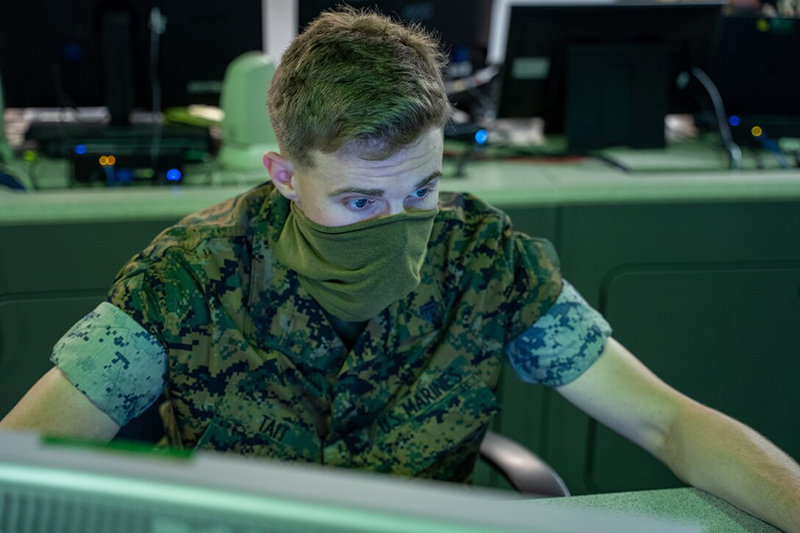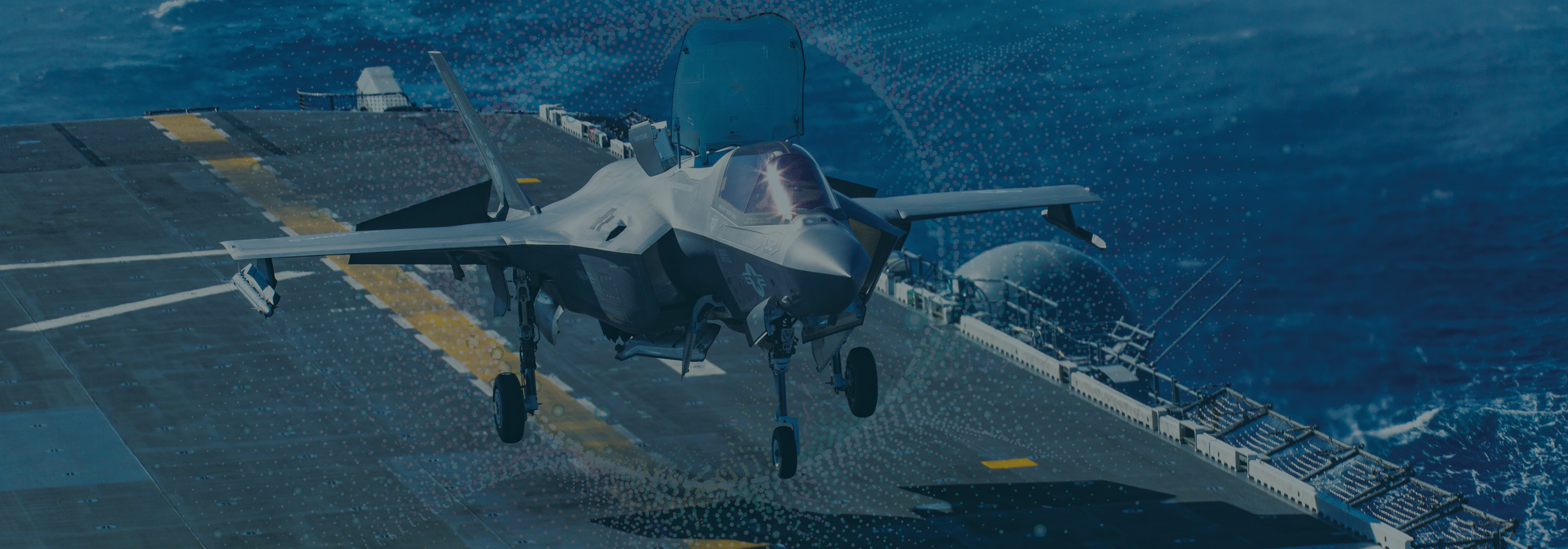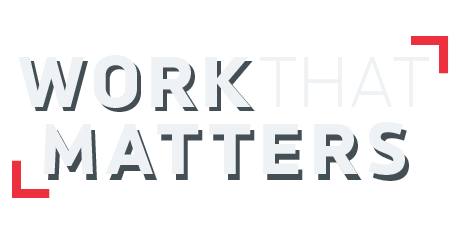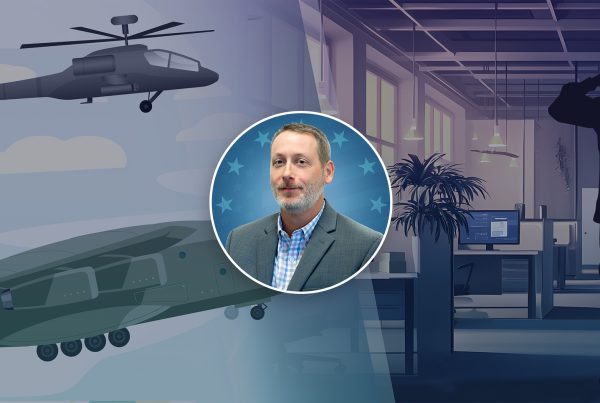“Work That Matters”
is a series in which ECS experts discuss their roles and responsibilities and the larger impact they have on the workplace, community, and world. In this installment, we interview Tim Clark, principal consultant at ECS. Tim works closely with the United States Marine Corps (USMC) to deliver digital modernization and information technology (IT) solutions that help the USMC improve the training and readiness (T&R) of its Marine Aviation units.
TIM CLARK
PRINCIPAL CONSULTANT

Q: What drew you to a career in technology?
A: I’ve been programming and “tinkering” with computers since I was young. I love the idea that you can tell a computer what to do, and it will follow your instructions exactly. Even now, well into my career, I still find that to be almost magic.
I also love solving big problems and thinking about all the various inputs, outputs, failure points, and changes that could happen. Then, building something that solves an important problem for an entire enterprise. That’s amazing!
Q: Tell me about your work with the USMC.
A: As principal consultant, I oversee the delivery of cloud, mission, application development, digital modernization, and IT solutions that help the USMC conduct flight operations and maintain combat readiness through real-time forecasting, scheduling, execution, and reporting. My team is responsible for developing and maintaining critical T&R systems that affect everyone served by the Marine Corps. These systems are responsible for tracking every USMC flight, the crew on each flight, their training, and more.

Q: In today’s digital world, organizations need to process vast amounts of data. How does data management impact mission readiness?
A: The Marine Corps needs to constantly gather and provide critical information on who needs to do what training and when. In the old days, the USMC had giant filing cabinets full of reports that had to be compiled by hand to gauge a unit’s readiness. Today, we can answer those questions with perfect accuracy with a single click. Our solutions alert flight schedulers if a pilot hasn’t performed the correct training for a particular flight. This, quite literally, can save lives. Timely information enables commanders to make timely, informed decisions that benefit their unit, the entire USMC, and ultimately, all of us.
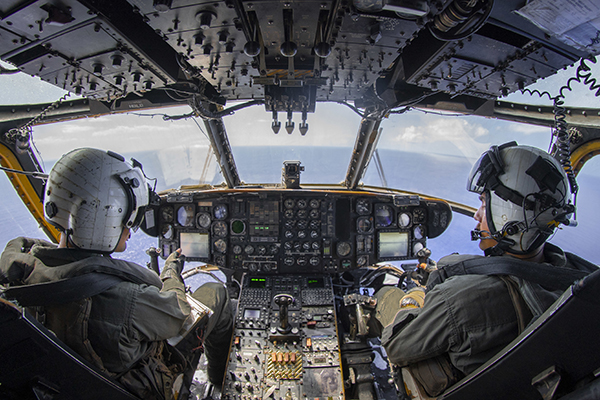
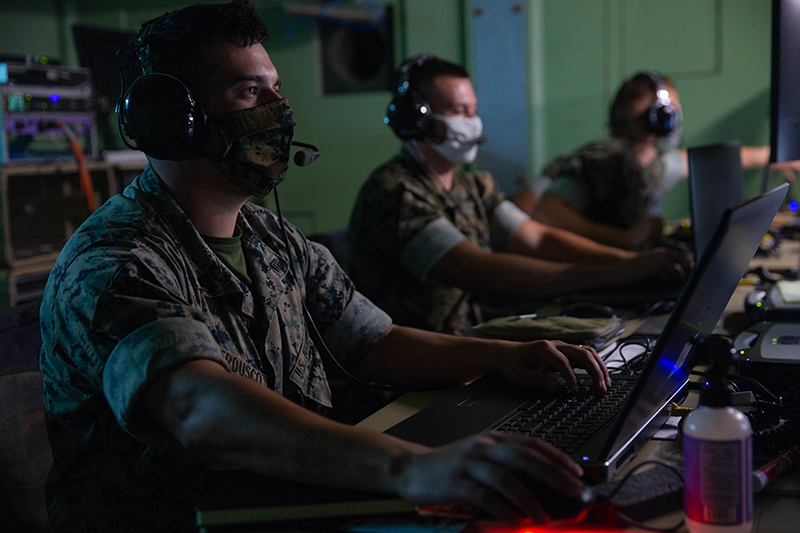
Q: ECS has a close relationship with the USMC extending over two decades. What is it like to support such a critical mission?
A: It’s an honor to play a critical role, working on systems that directly impact the lives of Marines! As we know, Marines have to be ready to deploy anywhere in the world at a moment’s notice in defense of freedom. Our system helps to ensure that Marines are properly trained for their mission.
Though the project scope is large, my team and I work closely with the USMC. Every two weeks, they visit to see progress and demos, and two of my teammates sit side by side with the Marines at Quantico. We often talk directly with the pilots using the system to garner their feedback and help improve our solutions. I get a sense of immense pride when they thank us for our work and time.
Q: You often talk about Agile development and agile teams. How does “agility” play into your work?
A: To successfully implement Agile development in a federal government environment, organizations need the right combination of systems, processes, and relationships. They need technical expertise, but they also must be operationally “agile” to adapt to changing mission needs. ECS has accomplished both of those goals. We’ve successfully implemented Scaled Agile Frameworks (SAFe) software development within the Marine Corps and have built a robust and agile team that can adapt to all different challenges.
The COVID-19 pandemic is a perfect example of ECS’ ability to adjust to mission needs rapidly. When the pandemic broke out, the team transitioned overnight to 100% remote operations. Many of the systems ECS works on are mission critical, so during the pandemic, we needed to find a way to stay connected and continue to release the necessary changes for the Marine Corps. The transition to remote work involved re-envisioning the way the Marine Corps builds its T&R manuals. I’m proud to say our team successfully met and overcame the challenges of remote work. We deployed over 800 user stories, significantly more than previous years, and we received an “Outstanding” grade from the Marines who will use this new functionality. This new system revolutionized T&R processes, resulting in a better prepared and safer Marine Corps.
